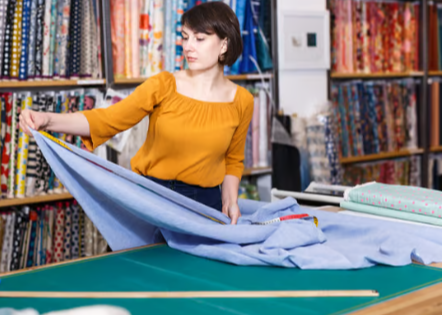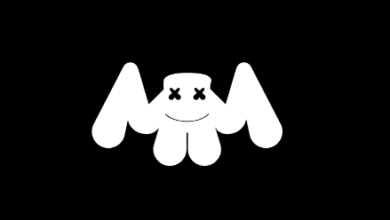Wholesale Textiles: A Comprehensive Guide to Sourcing Quality Fabrics in Bulk

The textile industry plays a vital role in the global economy, with wholesale textiles being a key component for businesses in fashion, hospitality, and manufacturing. Whether you’re a clothing brand, an interior decorator, or a hotel chain, sourcing textiles in bulk can significantly impact your cost efficiency and the quality of your products. This article will explore everything you need to know about wholesale textiles, from the types of fabrics available to the benefits of buying in bulk and how to choose the right supplier.
Understanding Wholesale Textiles
Wholesale textiles refer to the bulk purchase of fabrics, materials, or textiles directly from manufacturers or distributors, often at a discounted price. These textiles are typically sold in large quantities, making them ideal for businesses and organizations that need fabric on a large scale. The wholesale textile market offers a diverse range of materials including cotton, polyester, linen, silk, and more.
Types of Wholesale Fabrics
The textile industry is incredibly diverse, offering a wide variety of fabrics that serve different purposes. Below are some of the most popular types of wholesale fabrics:
Cotton Cotton is one of the most widely used fabrics in the world, known for its softness, breathability, and versatility. It’s ideal for making clothes, bedding, and towels, and is commonly available in various weaves like jersey, twill, and denim.
Polyester Polyester is a synthetic fiber known for its durability, resistance to wrinkles, and quick-drying properties. It’s often blended with natural fibers to create versatile, long-lasting fabrics that are perfect for upholstery, activewear, and outdoor gear.
Silk Silk is a luxurious fabric prized for its smooth texture, sheen, and natural strength. While it’s more expensive than other fabrics, buying silk in bulk can provide substantial savings. It’s commonly used in high-end fashion, drapery, and bedding.
Linen Linen is a natural fabric made from flax fibers. It’s known for its durability and ability to absorb moisture, making it a favorite in the production of summer clothing, home furnishings, and bedding. Linen has a timeless appeal and is highly sought after in the textile industry.
Wool Wool is a natural fiber that is perfect for winter clothing and insulation due to its warmth and durability. It’s widely used in clothing, carpets, and upholstery, making it a popular wholesale textile choice.
Rayon Rayon is a semi-synthetic fiber made from cellulose. It has the appearance and feel of natural fibers like silk and cotton but is more affordable. It is commonly used in clothing and home textiles such as curtains and upholstery.
Read more: Wxtu Fm
Benefits of Buying Wholesale Textiles
Purchasing textiles in bulk offers numerous benefits for businesses, including cost savings, consistent quality, and access to a wide variety of materials. Let’s explore some of these advantages in more detail:
Cost Efficiency
One of the primary reasons to buy wholesale textiles is the significant cost savings. When purchasing in bulk, manufacturers and distributors often provide discounts that are not available for smaller purchases. This allows businesses to reduce their production costs, offering higher profit margins and the ability to price products competitively.
Consistent Quality
Buying from a reputable wholesale textile supplier ensures that the fabric quality remains consistent across all orders. Consistency is crucial for businesses that require uniformity in their products, whether it’s for clothing lines, hospitality linens, or interior furnishings.
Wide Selection
Wholesale textile suppliers usually offer a wide variety of fabrics, textures, and patterns to choose from. This allows businesses to experiment with different materials and create unique products, while still maintaining cost efficiency.
Convenience
Ordering textiles in bulk reduces the need for frequent reorders, ensuring a steady supply of materials for production. This is particularly important for industries like fashion, hospitality, and interior design, where consistency and timely delivery are essential.
Factors to Consider When Choosing a Wholesale Textile Supplier
Selecting the right wholesale textile supplier can have a significant impact on your business’s bottom line and product quality. Here are some factors to consider when choosing a supplier:
Quality Control
Always assess the quality of fabrics before placing large orders. Request fabric samples to examine the texture, weight, and durability of the material. Ensuring the supplier meets your quality standards is essential for maintaining the integrity of your products.
Minimum Order Quantities (MOQs)
Most wholesale textile suppliers have minimum order requirements. Be sure to check the supplier’s MOQ to ensure it aligns with your business needs. Some suppliers may offer flexibility on MOQs depending on the fabric type and order size.
Lead Times
Lead time refers to the amount of time it takes from placing the order to receiving the materials. Consider suppliers with quick and reliable lead times, especially if your business operates on tight production schedules. Delays in textile delivery can impact your entire supply chain.
Pricing
Wholesale pricing varies significantly depending on fabric type, quantity, and supplier location. Request quotes from multiple suppliers and compare their prices to ensure you are getting the best deal. However, it’s important to remember that the cheapest option may not always offer the best quality.
Reputation
Research the reputation of potential suppliers by checking reviews, asking for references, or speaking to other businesses in your industry. A supplier’s reputation can give you insight into their reliability, customer service, and product quality.
Sustainability
With increasing awareness of environmental impacts, many businesses are looking for sustainable textile options. Consider suppliers that offer eco-friendly fabrics or adhere to sustainable manufacturing practices, such as using organic materials or reducing water and energy consumption in production.
Emerging Trends in Wholesale Textiles
The wholesale textile industry is continuously evolving to meet consumer demands and environmental challenges. Here are some of the key trends shaping the future of textiles:
Sustainable Textiles
More businesses are opting for sustainable textiles to reduce their environmental impact. This includes using organic cotton, recycled polyester, and other eco-friendly materials. Wholesale suppliers are increasingly offering sustainable fabric options, responding to the growing demand for eco-conscious products.
Smart Fabrics
Innovations in textile technology have led to the development of smart fabrics that can interact with their environment. These fabrics can monitor body temperature, adjust to light exposure, and even change color. While still a niche market, smart fabrics are expected to grow, offering new opportunities for businesses in fashion and interior design.
Customization
The demand for personalized products is driving the growth of custom fabrics in the wholesale market. More suppliers are offering bespoke fabric printing, allowing businesses to create unique patterns and designs that align with their brand identity.
Conclusion
Wholesale textiles offer numerous advantages for businesses, from cost savings and consistent quality to access to a diverse range of materials. Understanding the types of fabrics available, the benefits of buying in bulk, Direct textile store and how to choose the right supplier are critical to ensuring the success of your business. By keeping an eye on emerging trends like sustainability and smart fabrics, you can stay ahead of the competition and create innovative, high-quality products.




